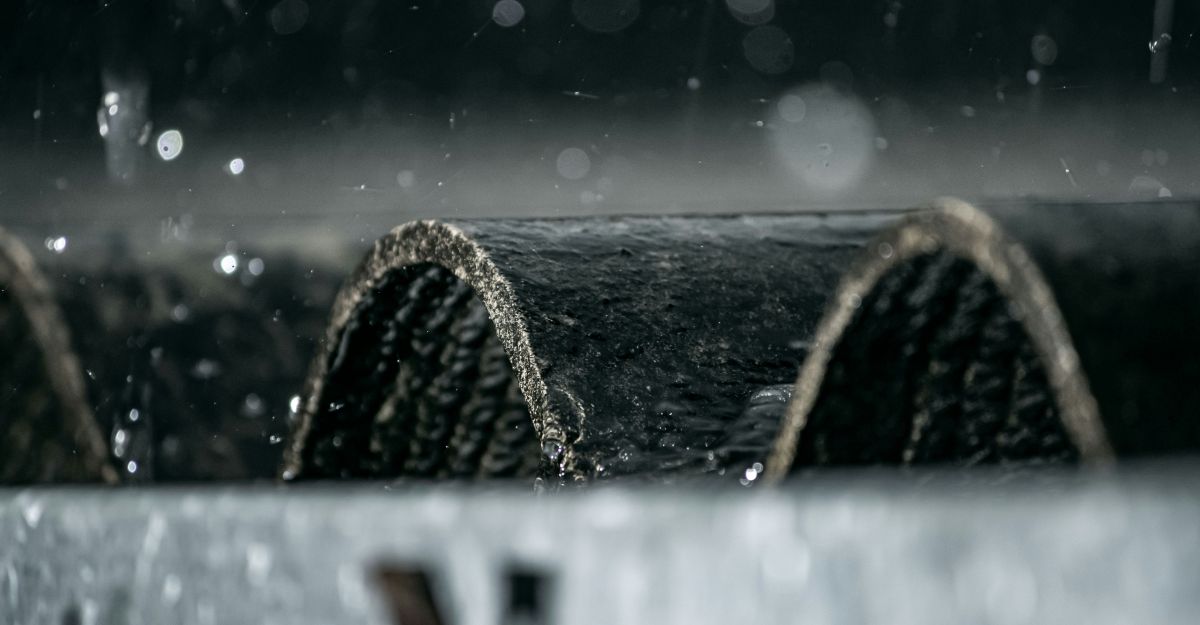In their second year of marriage, she became a spider. Her reasons for the metamorphosis varied depending on who was asking. She told her employer she needed more artistic growth and development; she told her mother she was compensating for gymnastic failures as a child; she told Michael she felt they had been growing apart and that she could now bind them together again. Literally.
Michael did not question her behaviour; he saw it as a test of their love. ‘If that’s what you want,’ he told her, ‘if you know what you’re doing … ’ and he trailed off, looked down at his large white hands folded on their kitchen table. It was true that, a month before, he had asked whether she was planning to go off the pill now – always, of course, with the understanding that she was perfectly within her rights to delay the birth of their first child. She had told him that she wasn’t sure and they didn’t discuss it further. After all, they were happy. They lived in a desirable area of town, had a house, a large backyard, and a cleaning service that came twice a month so there were never any spiders. His one qualm was that the cactus they had got when they were newlyweds was the only plant in the house.
Michael had tried to tell his wife he was afraid of spiders. He had squashed one when he was a child, separating its abdomen from its cephalothorax, leaving it to run around while its body was in pieces.
‘I need a change. I need to try and see,’ she said, hoping for the extra clarity eight eyes could give. She did not mention her eggs.
*
Michael realised their relationship was deteriorating when they no longer shared meals together. She had taken to killing insects and small invertebrates, sucking their blood and using digestive enzymes to reduce them to a broth-like consistency. (Out of consideration for him, she did not eat in the kitchen.) When he no longer felt like cooking, Michael went out with old university friends who introduced him to Dana. Dana was thirty-three and a teacher. Dana had copies of bridal magazines on the coffee table in her one bedroom condo – ‘for my sister’s wedding’ – and checked to see if he left the seat up when he used her bathroom. Dana told him, when she was very drunk one night, ‘when I was in kindergarten, and they asked me what I wanted to be, I said a mom. When they told me I couldn’t just do that, I said I would be a dad too.’
‘Me too,’ Michael said, even though he wasn’t sure if it was true.
‘But you know,’ Dana continued, ‘it’s hard to even have a dog when you live alone,’ and rested her head on his shoulder.
It was when Michael got home that she (he was still fairly sure she was she) would begin the accusations.
‘You don’t think I’m beautiful.’
He did not know. He would try to explain to her that the beauty of her perfectly formed eight symmetrical legs, and the utter foreignness of her abdomen with its two protruding spinnerets, was exotic; not the kind of beauty he was used to, and frankly (although he would never say this out loud), not his type.
‘You obviously misunderstand me. Don’t be a child,’ Michael said. He had taken to grinding his teeth.
Watching the tension in his jaw the way he didn’t look at her eyes, she was glad she no longer had teeth to grind. At times she felt guilty, but she never let him know about the eggs. She had noticed the cactus plant in the corner of their kitchen – when they were married it bloomed with a red flower. Now it was brown, unwatered, its needles sharp but brittle. Spiders, you see, can drown in water and Michael was never home anymore to notice.
When Michael went to bed she would retreat to her web – still close enough to hear him breathe – where she would quietly miss the significance of their intimacy in intercourse. During the night she would swing down from the ceiling and climb over his palms to the backs of his hands, even larger now, exploring the mountains of his knuckles, fingernails in need of a manicure.
She said to him, ‘I love you.’ Once he woke up suddenly and almost squashed her.
Noting her dependence on the breeze in her nightly escapades he stopped opening the window in their bedroom. ‘It isn’t good for you,’ he told her. Michael did not like causing pain.
‘No,’ she said, but wasn’t sure if he would understand, ‘this isn’t good for us,’ and he watched as she knocked over the cactus in her scuttle back upstairs. He watched as it spilled out at the roots and then he left.
When Dana opened the door of her condo, Michael stood outside. ‘What’s wrong?’ she asked.
‘My wife killed our cactus,’ Michael began, and inexplicably, he began to cry.
She could not tell him, but she had begun to lay her eggs, hundreds and hundreds of white pearls, like the necklace Michael’s mother gave her on their wedding day. She remembered looking in the mirror, twenty-eight with an adult job and soon a husband, happy, which is what she was supposed to be. There had been no reason for her not to stay that way; they did everything together; charity golf tournaments, whiskey tastings, vacations twice a year to Hawaii, Turks and Caicos, the south of Spain. The memories blended together so well she forgot most of the details. She knew this. She knew she had forgot the sale of her first painting, the way the art gallery felt on a quiet Wednesday night; little threads, the things she had wanted before she had wanted the things she got in her relationship. Those same threads began a whole new process of forgetting, like the way she had to forget how summer dresses at his work events made her thighs chafe, a rubbing on the inside of tender skin, the way he would suck her nipples until they were too tender to feel. A child was a natural progression. If the product of her egg and his sperm turned out to be a girl, there would be so many details, schedules for mummy-and-me swimming lessons on Saturdays, for ballet recitals, for play dates with the other mothers whose husbands travelled extensively for work. There would be the word ‘momma’ said over and over again, the one thing she wouldn’t be able to forget, the one detail she would have to remember.
As she covered the eggs outside her body with silver cocoons, she inexplicably felt wetness spilling down her from the eyes, from her prosoma to her abdomen. She felt this even though she knew it was impossible. Spiders have no tear ducts.
Michael returned home in the morning angry and demanded to know why she wouldn’t have a child with him. She asked him to admire the artistic handiwork of her spinnerets. She did not mention the egg – the one still inside her – the one she wasn’t sure she would keep. But he knew. She had wanted to tell him she could share the patch of weaving in the corner, that they could still have a life together, if only he would understand. She had intended to tell him, in time, when he got a little more used to the idea.
But Michael raged. He cried. He told her he was having an affair with Dana. ‘Dana listens and she wants to make a life with someone,’ he said helplessly. ‘She wants a dog. I don’t even recognise you anymore.’
He said she was a monster. He told her he was sick of cobwebs. She would have cried, except spiders feel no sadness. Instead, she brushed, with her palpus, the rather hard dry membrane covering her eyes.
She did not mention the eggs again. They were aborted a week later when she let him sweep out the corners of what used to be their bedroom in preparation for putting their house up for sale, destroying the web she had built for herself in the process. When they were gone, Michael sat on what used to be their bed, stared down at his large, white hands and told her, ‘I didn’t know what you wanted for us.’
‘I’m sorry,’ she said, ‘I never knew if I wanted us at all.’ She searched his face but without a larynx it was hard to communicate and she was not sure if he understood.
He never knew, but she was glad he had cut the thread. The room was airless, and she needed to be carried on the breeze.



